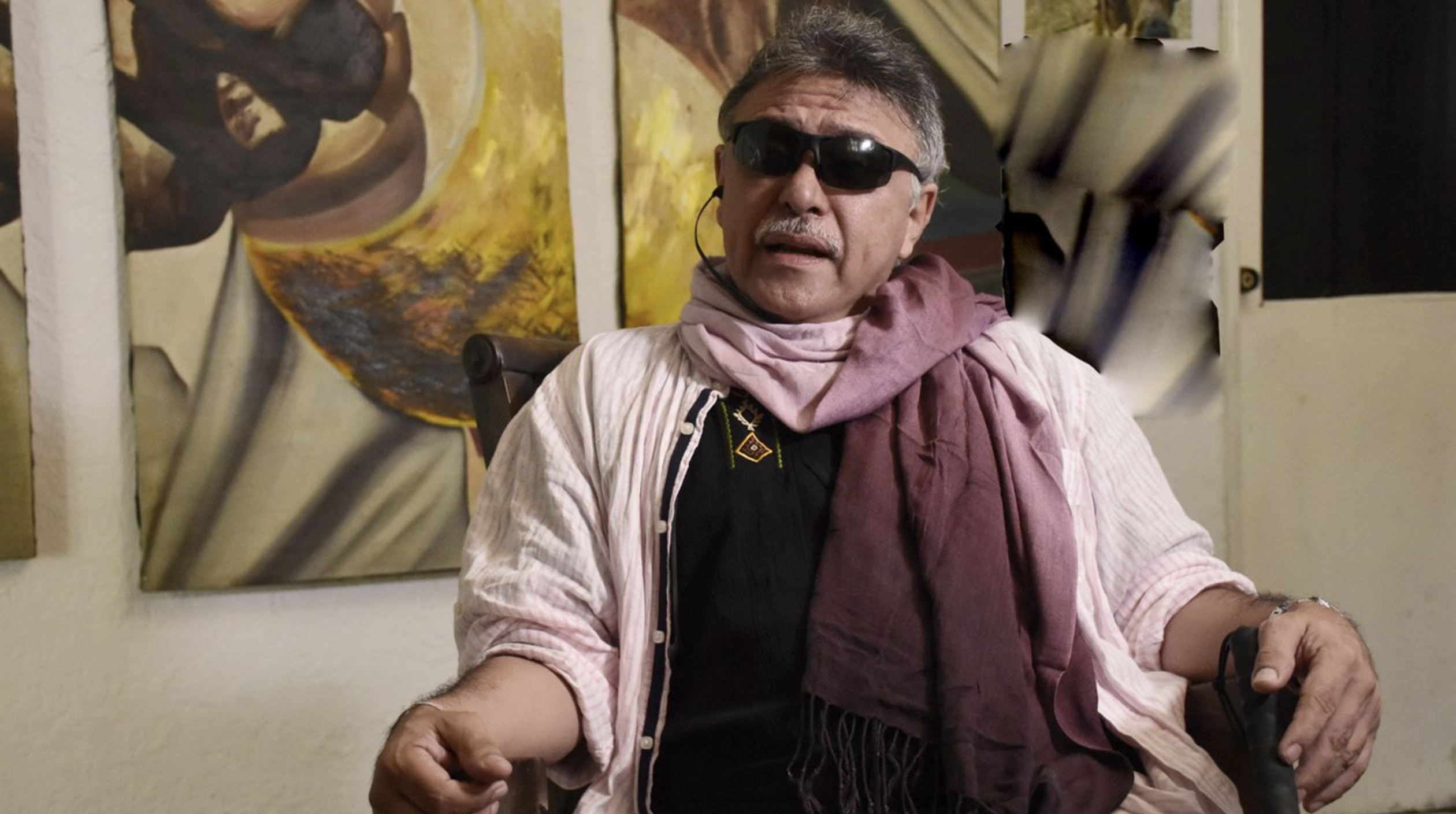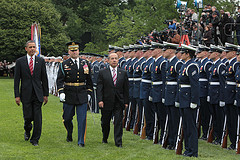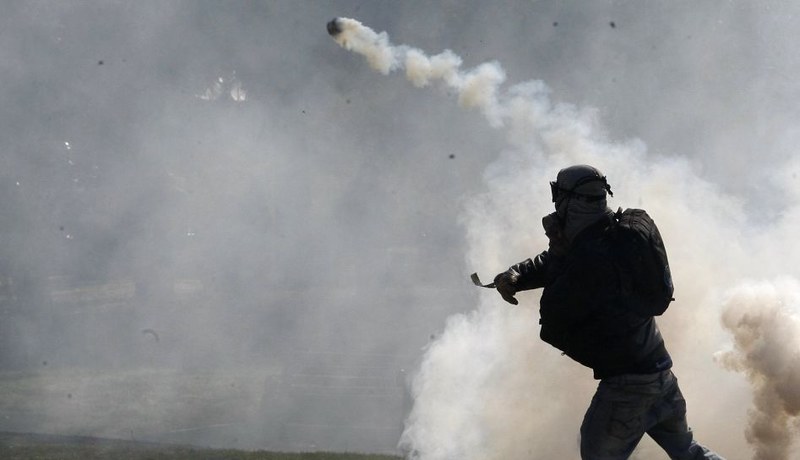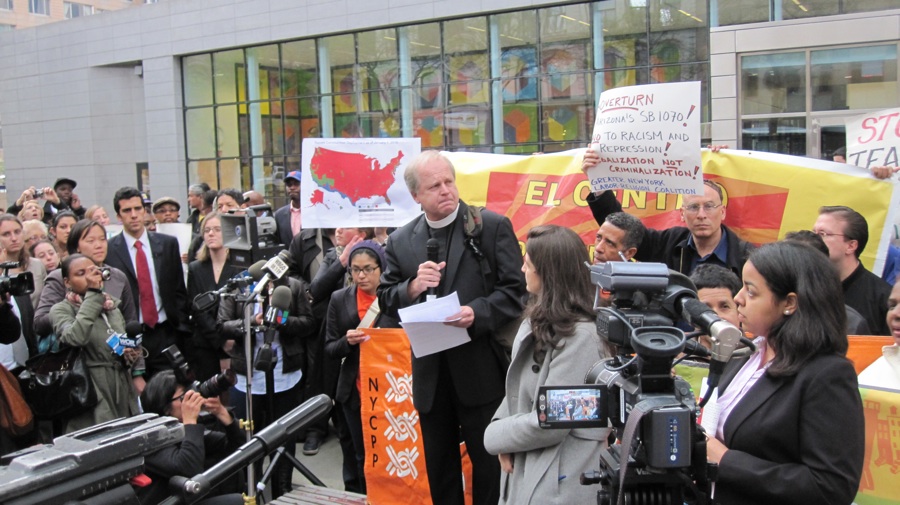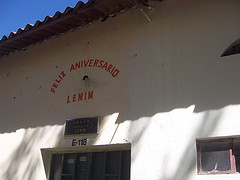
Colombia, Ecuador, Latin America: Week in Review
Ecuadorean Court Issues Arrest Warrant for Colombian Presidential Candidate Juan Manuel Santos
April 28, 2010 By Staff

Former defense minister and current presidential candidate Juan Manuel Santos.
Today in Latin America
Top Story — An Ecuadorean court issued an arrest warrant for Colombian presidential candidate Juan Manuel Santos that could threaten ties between Colombia and Ecuador, according to current Colombian President Álvaro Uribe.
The arrest warrant stems from Santos’ involvement in a 2008 bombing raid against Colombia’s FARC rebels on the Ecuadorean side of the border. At the time Santos was Colombia’s defense minister and he allegedly oversaw the raid.
“We have made every effort to advance the reestablishment of relations with Ecuador and we will continue doing so, but this decision by the Ecuadorean courts affects that process,” Uribe said, according to the Washington Post.
The border dispute killed 24 people including FARC commander Raúl Reyes, but soon after Ecuadorean President Rafael Correa ruptured ties between the two Andean nations. Tensions have also risen along the Venezuela-Colombia border, where Venezuelan President Hugo Chávez has criticized Colombia over a pact allowing U.S. troops greater access to its military bases for anti-narcotics operations.
Santos, who had previously been expected to win Colombia’s May 30 presidential elections, currently sits second in Colombian election polls behind former Bogotá mayor Antanas Mockus.
Just Published at the Latin America News Dispatch
- At Beyond Borders: Immigrants rally nationally to protest the new Arizona law.
- Arizona’s governor Jan Brewer signed a strict new immigration law on Friday.
- With the conference under way in Cochabamba, Nikolas Kozloff, author of No Rain in the Amazon: How South America’s Climate Affects the Entire Planet, asks how climate change will affect El Niño — an irregular weather pattern that periodically wreaks havoc on the Andes.
Headlines from the Western Hemisphere
North America
- The U.S. Attorney for Arizona said that authorities broke up a drug ring that allegedly smuggled 40,000 pounds of marijuana into southern Arizona from Mexico.
- The Mexican government issued a travel warning to its citizens for the state of Arizona, after Gov. Jan Brewer signed a new state law that cracks down on illegal immigration.
Caribbean
- The Cuban government began granting licenses for people to build their own homes, through an initiative that was approved last year.
- A group of 250 Haitians arrived in Mexico this weekend, as part of a family reunification plan.
Central America
- Guatemala’s Santiaguito volcano, which erupted Monday, spewing sand and ash over large areas of western Guatemala, is still generating small to moderate explosions.
- The U.S. Treasury Department imposed sanctions against Guatemala’s Lorenzana family on Tuesday, accusing them of running one of the country’s biggest drug trafficking networks.
- El Salvador echoed Mexico’s concerns over the new Arizona immigration legislation.
- Honduran President Porfirio Lobo made hist first visit to south Florida Tuesday. A graduate of The University of Miami, Lobo is speaking at the institution’s fifth Latin America conference.
- Some relatives of those tortured and killed under Panama ex-dictator Manuel Noriega’s rule are angered that his sentence may be fulfilled in France, as opposed to back home in Panama.
Andes
- A U.S. military official said Tuesday that Iran’s presence in Venezuela was strictly diplomatic and commercial, with no military role.
- Ecuador has restarted its deal with China to finance a $2 billion hydroelectric plant.
- A Peruvian soccer player was arrested on rape charges Monday at his home in the Gosforth area of Newcastle, England.
Southern Cone
- Argentine Malbec has not only survived the economic downturn, but has prospered. It is the only wine to see improvement in a sluggish economy.
- Chilean airline LAN’s profits more than doubled in its first quarter, the company reported Tuesday.
- Paraguayan senator Roberto Acevedo, who narrowly survived an ambush by gunmen, said that Paraguay’s border with Brazil has come to resemble the increasingly violent border Mexico shares with the U.S.
Image: Center for American Progress @ Flickr.
